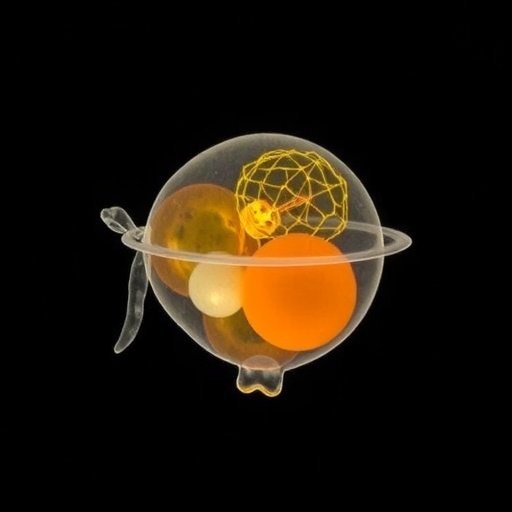Marsupial Epigenetics Unveil Evolutionary Secrets of Mammalian Embryo Formation
A groundbreaking study from the Francis Crick Institute has provided unprecedented insights into one of the most enigmatic processes in mammalian development: the erasure of a pivotal epigenetic modification in embryos during their earliest stages. This research not only challenges long-held assumptions but also proposes an evolutionary rationale linking this epigenetic phenomenon to the emergence of the placenta—a defining characteristic of eutherian mammals.
Epigenetics refers to the complex regulatory modifications atop the DNA sequence that influence gene activity without altering the genetic code itself. Among these, DNA methylation—where methyl groups are chemically added to DNA bases—is one of the most widely studied. These methylation marks serve as crucial regulators, ensuring genes turn on or off at the right moments during development and cell differentiation. Interestingly, it is a universal hallmark in mammals that embryos undergo a thorough genome-wide wipe of DNA methylation shortly after fertilization but before implantation. Despite its ubiquity, the underlying reason why this “wiping” or DNA demethylation exists has puzzled scientists for decades.
Prior hypotheses posited that this demethylation was essential for fundamental developmental milestones—such as activating the embryonic genome or enabling the diverse differentiation of embryonic cells into various specialized tissues. However, studying this was complicated by the synchronous timing of these events in placental mammals (eutherians) like mice and humans, which develop rapidly and overwrite their methylation marks early.
Breaking new ground, the Crick Institute team turned their attention to marsupials—a distinct infraclass of mammals that diverged from eutherian ancestors approximately 160 million years ago. The Australian opossum, in particular, was chosen for its slower, staggered embryonic development, providing a natural biological system to decouple the processes traditionally entangled in placental mammals.
Generating a comprehensive DNA methylation map, the researchers analyzed methylation profiles in opossum eggs, sperm, and embryos to compare with known data on eutherian species. Remarkably, they found that, unlike placental mammals, opossum embryos did not fully erase DNA methylation after fertilization. Instead, methylation levels were retained through the earliest embryonic stages, with demethylation occurring much later and localized predominantly to the trophectoderm—a specialized cell lineage destined to become the placenta in marsupials.
This insight is profound. It indicates that the dramatic, early embryonic wipe of methylation seen in placental mammals is not a universal mammalian feature but rather an evolutionary adaptation associated explicitly with placental development. The evolutionary divergence between marsupials and eutherians appears to be mirrored at the epigenetic level, with the methylation resetting potentially emerging as a key driver in the complex evolution of the placenta.
Interestingly, the research further suggests that selective removal of methylation in the placenta facilitates the activation of transposable elements—so-called “jumping genes.” These genetic elements, once thought to be mere genomic parasites, have increasingly been recognized for their role in regulating host gene expression and contributing to genomic innovation. Their expression within the placenta may drive rapid adaptive evolution of this critical organ, aligning with its remarkable diversity and complexity across mammalian species.
Dr. Bryony Leeke, a former Crick PhD student and co-first author of the study, explained that the unique epigenetic landscape in the placental precursor cells likely enables these transposon-driven regulatory modifications. Meanwhile, senior author James Turner expressed surprise that the universal model derived from placental mammals does not fully apply to marsupials, underscoring how comparative studies in diverse mammals can reshape our understanding of fundamental biology.
The implications of this research extend far beyond developmental biology. By illuminating how epigenetic mechanisms have evolved alongside mammalian reproductive strategies, this work opens avenues for understanding diseases linked to epigenetic dysregulation. The placenta itself is a critical organ for fetal development and maternal health, and uncovering the epigenetic nuances of its formation could inform medical strategies related to pregnancy complications and developmental disorders.
Technologically, the study leveraged state-of-the-art sequencing approaches to generate high-resolution methylation maps, a feat previously unachievable in non-model organisms like marsupials. These detailed epigenetic profiles provide a rich resource for further studies into mammalian evolution and development.
From an evolutionary perspective, the findings reinforce the concept that what are often considered universally conserved biological processes can, in fact, show surprising diversity when studied across a broader taxonomic range. The divergence in embryonic epigenetic reprogramming between marsupials and eutherians illustrates how evolutionary pressures tied to reproductive biology shape molecular mechanisms in distinct lineages.
Moreover, the persistence of methylation marks in early opossum embryos suggests alternative strategies for genome regulation during development, challenging the prevailing dogma that embryonic methylation wiping is indispensable. This compels the scientific community to reconsider models of epigenetic inheritance and reprogramming, with potential repercussions for the fields of developmental biology, epigenomics, and evolutionary genetics.
Dr. Turner emphasized the value of studying “the odd ones out” in nature, such as marsupials, noting that their unique biology offers critical windows into understanding processes otherwise obscured when focusing solely on traditional model organisms. This principle underscores a broader scientific approach: diversity is a key to unlocking hidden mechanisms underpinning complex biological phenomena.
As the researchers continue to explore the functional consequences of epigenetic divergence in mammals, these findings pave the way for future investigations into how the intricate dance of DNA modification and gene expression across species shapes development, adaptation, and ultimately survival. The placenta, as one of the fastest-evolving mammalian organs, stands at the nexus of this evolutionary narrative, spotlighted by the subtle yet profound epigenetic modifications illuminated by this pioneering work.
Subject of Research: DNA methylation dynamics during mammalian embryonic development
Article Title: Divergent DNA methylation dynamics in marsupial and eutherian embryos.
News Publication Date: 14 May 2025
Web References: http://dx.doi.org/10.1038/s41586-025-08992-2
References: Leeke, B.J. and Varsally, W. et al. (2025). Divergent DNA methylation dynamics in marsupial and eutherian embryos. Nature. 10.1038/s41586-025-08992-2.
Keywords: Marsupials, Embryos, Placenta, Developmental biology
Tags: breakthroughs in developmental biologyDNA methylation in embryosembryonic genome activationepigenetic modifications in mammalsevolutionary biology of placental mammalsFrancis Crick Institute studygene regulation during developmentmammalian epigenetics researchmammalian evolution and developmentmarsupial embryonic developmentsignificance of DNA demethylationunderstanding mammalian embryo formation





